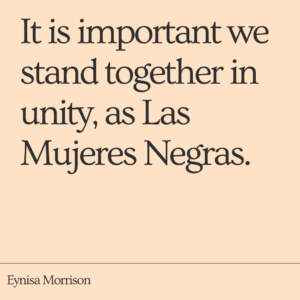 Growing up, it isn’t uncommon for girls with lighter skin who are a part of the Afro-Latinx community to be asked questions such as “What are you mixed with?” and “Where are your parents from?” Afro-Latinx girls who have darker skin, however, are faced with questions like “Are you sure you’re not just Black?” and “Why don’t you look Latinx, then?” Though these questions may have been seen as innocent in our youth, these differences in questions demonstrate a deeply engraved presence of colorism within the larger Latinx community, with those who have lighter skin considered to be “prettier” and those with darker skin being viewed as the opposite.
Growing up, it isn’t uncommon for girls with lighter skin who are a part of the Afro-Latinx community to be asked questions such as “What are you mixed with?” and “Where are your parents from?” Afro-Latinx girls who have darker skin, however, are faced with questions like “Are you sure you’re not just Black?” and “Why don’t you look Latinx, then?” Though these questions may have been seen as innocent in our youth, these differences in questions demonstrate a deeply engraved presence of colorism within the larger Latinx community, with those who have lighter skin considered to be “prettier” and those with darker skin being viewed as the opposite.
Growing up as a Black and Mexican girl with lighter skin, I’ve experienced the privilege that comes with it, though my being privileged didn’t become apparent to me until my high school years. This was around the same time I had started to become more aware of social issues such as racism, misogyny, colorism, etc. and how these issues affect me and others like me, whether positive or negative. Since then, I’ve been trying to find ways to support darker-skinned women who are negatively affected by colorism in the Afro-Latinx community, and I’ll admit, it’s not simple to do. As someone with lighter skin, not only do you have to recognize your own privilege, but you also have to learn how to prevent overpowering the voices of dark-skinned women with your own outspokenness, as it ultimately places dark-skinned women in subordinate positions within their own fights whilst maintaining the presence of colorism in societies around the world.
Despite common misconceptions, the presence of colorism in the Afro-Latinx community is not specific to America. Instead, the issue is worldwide and present in Latin America, Europe, and various other regions around the globe. For instance, in Brazil, Mulattas (Brazilian women of both Black and White ancestry) have historically been seen as sexually desirable and have been deemed sex symbols, whereas darker-skinned Afro-Brazilian women are seen as undesirable and as representations of poverty. Even though both Mulattas and darker-skinned Brazilian women are objectified and discriminated against in various ways, Brazil’s society is more willing to accept a Mulatta due to her lighter skin and “prettier” image rather than a darker-skinned Afro-Brazilian woman. We see similar circumstances in American society, where Afro-Latinx women with lighter skin are heralded as exotic, beautiful, acceptable, whereas darker-skinned Afro-Latinx women are commonly negatively regarded.
Perceptions of society such as these around the world instill the idea within darker-skinned women that they must aim toward achieving lighter skin, which then leads to practices such as skin lightening or bleaching, which can ultimately prove to be dangerous for an individual’s health. Not only that, colorism affects darker-skinned women’s self-confidence and mental health, as society’s constant failure to accept darker-skinned women for who they are has the ability to evoke feelings of worthlessness, inferiority, and even depression within these women.
So, what can you do to combat colorism in the Latinx community? The first step to becoming an ally is to educate yourself. Attend virtual keynote speaker events that address colorism in the Latinx community, read books, scholarly journals, and articles on the issue, listen to the stories of darker-skinned Afro-Latinas, try to gain an understanding of their experiences, and utilize the internet to gain more information. In this day and age, the world is at our fingertips and we have the ability to access tons of information. Additionally, if you are a lighter-skinned Afro-Latina, it is important to learn to recognize your privilege. Failure to do so, coupled with the denial that lighter-skinned privilege even exists, leads to the silencing of darker-skinned Afro-Latinas, as their experiences are then dismissed and invalidated. It is discriminatory behaviors such as these, which may seem minor, that contribute to the prevalence of colorism in the Latinx community, and communities across the globe.
Ultimately, it is essential that both the Latinx and Afro-Latinx communities identify colorism and actively seek to dismantle the presence of it in societies on a universal scale. This will then lead to an increased sense of solidarity within these communities on the basis of appreciation of shared heritage and activism. Until then, we as Afro-Latinx women must fight this issue that divides us within our own communities, negatively affects the self-esteem and mental health of our beautiful dark-skinned sisters, and contributes to the overall system of racism. It is important we stand together in unity, as Las Mujeres Negras.
 Eynisa Morrison is an undergraduate student attending the University of North Carolina at Chapel Hill, double majoring in psychology and sociology. She is involved in various campus organizations including The Bridge publication and Afro-Latinx.
Eynisa Morrison is an undergraduate student attending the University of North Carolina at Chapel Hill, double majoring in psychology and sociology. She is involved in various campus organizations including The Bridge publication and Afro-Latinx.

There are no comments
Add yours